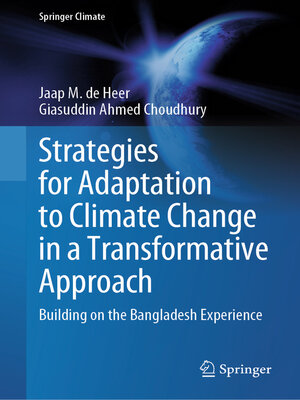Strategies for Adaptation to Climate Change in a Transformative Approach
ebook ∣ Building on the Bangladesh Experience · Springer Climate
By Jaap M. de Heer

Sign up to save your library
With an OverDrive account, you can save your favorite libraries for at-a-glance information about availability. Find out more about OverDrive accounts.
Find this title in Libby, the library reading app by OverDrive.



Search for a digital library with this title
Title found at these libraries:
| Library Name | Distance |
|---|---|
| Loading... |
The Bangladesh experience shows that adaptation to climate change needs to be seen in conjunction with existing and changing weather patterns, natural hazards and the natural resources systems. Moreover, adaptation to climate change has next to the physical and technical content a socio-economic dimension in relation to the many societal and economic aspects of water resources and climate change. Adaptation, in terms of strategy making and implementation, is thus embedded in a countries’ society with its traditions, technologies, governance and policies. This means that adaptation strategy making and implementation, while focusing on the physical system and use of technologies, are primarily cultural processes, characterized by a struggle for meaning in uncertainty, sense making and sense giving to define the issues and challenges and formulate strategies, thinking about appropriate measures, taking action and managing transformation. Besides, the power-related aspects of negotiation and decision-making including budget allocation for investments are evident as well. The BDP 2100 is a strategic plan with many techno-economic analyses, choices and proposals while it is basically ‘an expression of the politics of culture’ (De Heer, 2009, 2013).







